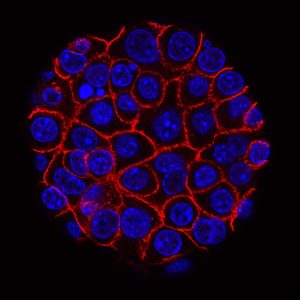Afinitor too costly for NICE despite price cut
pharmafile | August 29, 2013 | News story | Sales and Marketing | Afinitor, HER2 negative, NICE, Novartis, breast cancer
NICE believes that Novartis’ breast cancer drug Afinitor should not be recommended for use in England as it is “not a good use of NHS money”.
The new guidance advises that the Afinitor (everolimus) should not be funded as a treatment for postmenopausal women with HER2 negative, hormone-receptor-positive advanced breast cancer.
Sir Andrew Dillon, NICE’s chief executive, explained: “NICE assesses treatments and recommends those which are found to be the most clinically and cost effective. With limited NHS funds, it’s important we make recommendations based on how well a treatment works compared to alternative treatments in the NHS, as well as any associated side effects and the cost that the health service is being asked to pay.
“The independent appraisal committee, which reviewed everolimus, acknowledged it could delay the growth and spread of breast cancer by around four months, but there were uncertainties relating to how long it could extend a person’s life compared with the drug exemestane alone.
“Using the evidence that was available, the committee concluded that everolimus is not a cost effective option for the NHS.”
The price for a pack of 10mg tablets, which has 30 tablets per pack, costs £2,970. Novartis has offered a confidential patient access scheme for its drug, but this has not been enough to sway NICE into recommending the treatment.
Novartis said that the median progression-free survival (the time point in the trial at which the 50% of people experience either disease progression or death) with its drug plus Pfizer’s Aromasin (exemestane) was 4.6 months longer than with Aromasin alone.
But NICE’s expert committee said that the clinical trial data ‘generated uncertainty’ relating to the efficacy of the treatment compared with relevant chemotherapy regimens, and how much the treatment may extend overall survival.
NICE’s decision follows the Scottish Medicines Consortium’s guidance from July, which also failed to recommend the drug for this licence.
Breast cancer is the most common cancer in the UK with nearly 50,000 women and 400 men diagnosed each year.
Afinitor works by blocking a protein in the body that regulates the division of tumour cells and growth of blood vessels. This can help stop cancer cells from multiplying and spreading. Novartis estimates that around 1,500 people would be eligible to receive its drug, if it were to be recommended.
The drug already has a number of licences, including for kidney cancer, prevention of organ rejection after renal transplant (under the name Zortress) and for metastatic pancreatic neuroendocrine tumours.
Ben Adams
Related Content

Novartis shares new data about Fabhalta for IgAN treatment
Novartis has announced new results from a pre-specified interim analysis of its phase 3 APPLAUSE-IgAN …

NICE recommends migraine treatment for NHS use
The National Institute for Health and Care Excellence (NICE) has shared draft guidance recommending AbbVie’s …

FDA accepts BLA for AstraZeneca and Daiichi Sankyo’s datopotamab deruxtecan for breast cancer treatment
AstraZeneca and Daiichi Sankyo have announced that their Biologics License Application (BLA) for datopotamab deruxtecan …








